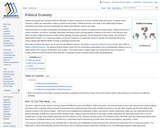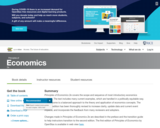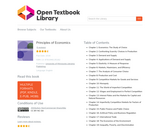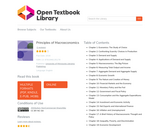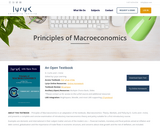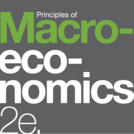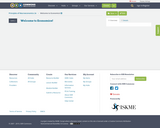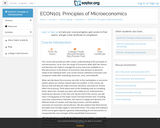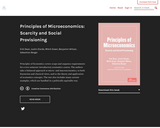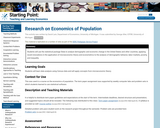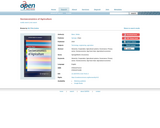
Russell Cooper and Andrew John have written an economics text aimed directly at students from its very inception. You're thinking, ”Yeah, sure. I've heard that before.“
This textbook, Microeconomics: Theory Through Applications, centers around student needs and expectations through two premises: … Students are motivated to study economics if they see that it relates to their own lives. … Students learn best from an inductive approach, in which they are first confronted with a problem, and then led through the process of solving that problem.
Many books claim to present economics in a way that is digestible for students; Russell and Andrew have truly created one from scratch. This textbook will assist you in increasing students' economic literacy both by developing their aptitude for economic thinking and by presenting key insights about economics that every educated individual should know.
- Subject:
- Business and Communication
- Economics
- Social Science
- Material Type:
- Textbook
- Provider:
- The Saylor Foundation
- Provider Set:
- Saylor Textbooks
- Author:
- Andrew John
- Russell Cooper
- Date Added:
- 06/14/2019
